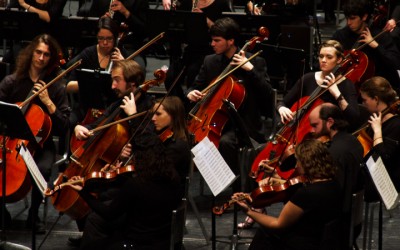On March 23rd and 24th, UNM Music Professors Kristina Jacobsen (Ethnomusicology; former President, Society for Ethnomusicology, Southwest Chapter) and David Bashwiner (Music Theory; outgoing President, Rocky Mountain Society for Music Theory) traveled with Musicology and Music Theory graduate students Regan Homeyer, Renata Yazzie and Matthew Stanley to present their original research at the regional Rocky Mountain Scholars’ Conference in Tucson, Arizona, hosted by the University of Arizona’s Department of Music. The very successful student papers given were:
Matthew Stanley (Music Theory), “Toward Metric Stability: The Interplay of Hemiola, Syncopation, and Meter in Brahms’ Violin Sonata No. 1 in G Major, Op. 78”
Regan Homeyer (Musicology), “Sounding the Nile: Hamza El Din as ‘Ethnographic Ear’”
Renata Yazzie (Musicology/Piano Performance), “Indigenizing Art Music: An Analysis of Connor Chee’s Navajo Vocables for Piano
The American Prize in Vocal Performance—Women in Art Song and Oratorio, 2022 Winner
The American Prize National Nonprofit Competitions in the Performing Arts, David (Volosin) Katz, founder and chief judge, is honored to announce the winners, runners-up, and honorable mentions of The American Prize in Vocal Performance—women in art song and oratorio,...
UNMSO and UNM Choirs Present: A Concert For Healing
Friday, May 5 at 7:30 pmPopejoy HallUNM Symphony Orchestra directed by Dr. Matthew Forte.UNM Choirs directed by Dr. David Edmonds The UNM Choirs and Symphony Orchestra present a concert that speaks directly to the challenges faced by musicians during the COVID-19...
Announcing the 2022 Distinguished Music Alumni Award recipient
We’re proud to announce the 2022 Distinguished Music Alumni Award recipient. The UNM Department of Music is awarding the first Distinguished Alumni Award to Colonel Jim R. Keene in recognition of his outstanding accomplishments in the field of music. Col. Keene...



